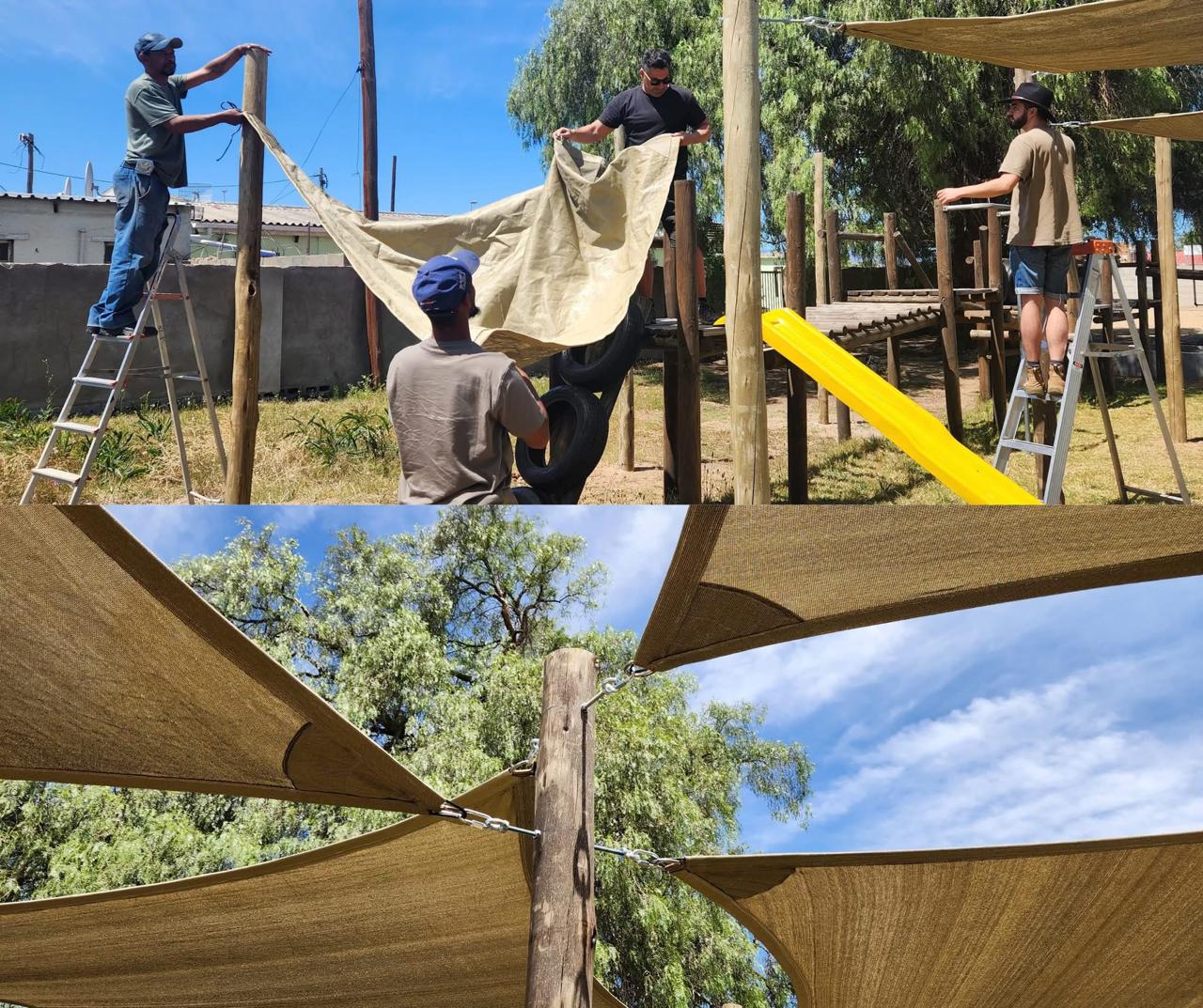Small steps, big shifts: Preparing ECD centres for a changing climate
11 Aug 2025
Climate change is already shaping the world that young children are growing up in. Things like extreme heat, poor air quality, floods, and droughts all affect where children live, play, and learn, especially in under-resourced communities. The early years really matter (the years from conception to age 6), because a child’s brain and body are developing faster than at any other time in life. When their environment is unstable or unhealthy, it affects everything from their ability to learn to their long-term health.
On the one hand, we need to respond to these threats. But there’s also an opportunity: if we introduce playful, age-appropriate environmental education from a young age, we can help children understand the world around them and start building climate awareness early. When children learn to care for the environment early on, they’re more likely to grow up protecting it too!
We believe that ECD must be part of the climate solution. That’s why, during this financial year, we’ve developed a clear, government-endorsed plan to create a Climate Resilience Toolkit for the ECD sector - designed to offer practical, scalable solutions that address both climate education and infrastructure adaptation.
We have the endorsement, capacity, and partners to help build.
Now, we need catalytic funding to bring it to life
.jpeg)
The problem we must tackle together
Despite being among the most vulnerable to climate impacts, young children are largely excluded from climate adaptation strategies, and the ECD centres they attend are feeling the strain.
In Boksburg, an ECD principal described how water floods through her centre grounds during rainstorms. “When it floods, water comes straight through our grounds. I carry each child, one by one, across the water to get them inside. It's not safe, and we start late most days because of this”.
In Nkomazi and Bushbuckridge, practitioners report overheated classrooms, unshaded playgrounds, garden crop failures, and worsening water shortages. These conditions are already compromising children’s health, learning, safety, and nutrition - and climate science tells us this is just the beginning.
At the same time, early learning environments are missing the opportunity to equip children and caregivers with the language, knowledge, and resilience they’ll need to navigate a changing world. South Africa’s ECD curriculum does not yet integrate climate education in meaningful ways, and most practitioners lack age-appropriate content, training, or confidence to introduce these topics in playful, relevant ways.
This dual gap (in climate-safe infrastructure and climate-smart education) creates a major blind spot in our country’s approach to climate adaptation.
Our response: A climate resilience toolkit for ECD
To close this gap, the DO MORE FOUNDATION is leading the development of a Climate Resilience Toolkit for South Africa’s ECD sector, in response to direct requests for support from the Department of Basic Education (DBE).
This practical, two-part toolkit seeks to give ECD centres, NGOs, funders, and government a clear way to strengthen climate resilience in early childhood spaces:
Module 1: Learning and play
A playful, age-appropriate climate education package for children, caregivers, and practitioners (co-created by the sector for the sector). It will include songs, stories, hygiene messages, games, and outdoor learning activities that align with the National Curriculum Framework. Topics will include water, food, seasons, biodiversity, energy, and care for the earth - grounded in indigenous knowledge and built around the EAT LOVE PLAY TALK methodology.
Module 2: Creating safe spaces
An infrastructure guidance module that will offer low-cost, context-sensitive ideas to adapt ECD centres to climate stressors. This includes shade solutions, heat-reducing paint, ventilation tips, water harvesting systems, raised gardens, and more - ideally aligned to the DSD Norms and Standards. The module is intended for use by funders, implementing partners, municipalities, and ECD principals to inform climate-smart investment decisions. The toolkit will be designed for open-source distribution and cross-sector use, positioning the ECD sector as both a priority for protection and a platform for change.

Why This Matters for the Sector
This toolkit fills a missing piece in the puzzle of South Africa’s climate response: how to practically include young children in climate adaptation and education efforts.
With the ECD function now under DBE, and growing interest from philanthropy and corporate funders in climate-linked work, this toolkit offers:
A clear entry point for funders looking to invest in climate resilience at community level
A bridge between climate actors and child-focused organisations, making collaboration more achievable
A model that can be scaled across provinces and adapted in the Global South
Before this journey started, DO MORE co-founded the South African Early Years Climate Action Alliance (SAEYCA) with Capita (USA). The SA Early Years Climate Action Alliance is dedicated to fostering a sustainable and resilient society by prioritising young children (0 to 6) and their families in climate adaptation strategies. By reimagining societal structures - from health and education to infrastructure and urban design - the alliance aims to ensure that the well-being of children and families is at the heart of climate action.
While the Toolkit is a DO MORE FOUNDATION initiative, SAEYCA serves as a critical advisory and learning platform, ensuring cross-sector relevance and alignment with best practices.
Testing the Vision: Mandela Day Pilot
In July 2025, we raised enough funds to pilot key infrastructure ideas at 50 ECD centres across Gauteng, North West and Mpumalanga during our Mandela Day campaign in partnership with Jacaranda FM. Over the next four months, selected Centres will receive simple ‘climate resilient’ upgrades (shade netting, solar-powered fans, heat-reflective paint, and water harvesting systems, among others). These sites will be monitored through the summer to assess the real-world impact of these interventions.
The learnings from this pilot will feed directly into the infrastructure component of the Toolkit - ensuring solutions are practical, affordable, and effective.

A Call to Funders: Help Build the Toolkit That Builds the Future
We have a detailed implementation plan, the technical and creative capacity to deliver, endorsement from the Department of Basic Education, and sector-wide interest and support through the South African Early Years Climate Action Alliance (SAEYCA). What we need now are funding partners to bring this vision to life.
By investing in this work, funders will help equip ECD practitioners with the tools to teach and talk about climate change in age-appropriate, engaging ways (utilising what already exists in the sector). They will support the development of low-cost infrastructure guidance to help protect young children from heat, floods, and other climate shocks. Most importantly, they will be contributing to the creation of an open-source, scalable resource that can support national government implementation while inspiring similar efforts across the Global South.
This is a practical, high-impact opportunity to support a just transition that includes our youngest citizens from the very beginning. If you're a funder committed to climate resilience, child rights, or systems change, we invite you to join us in building the toolkit that builds the future.
For more information, please contact Cara.Goschen@domore.org.za